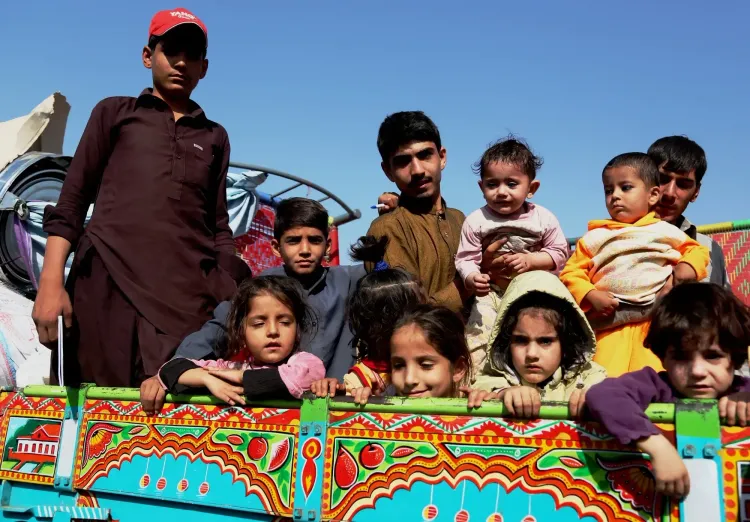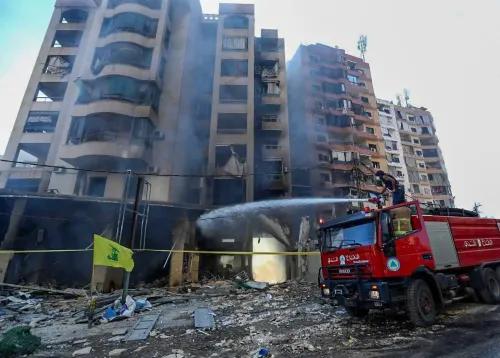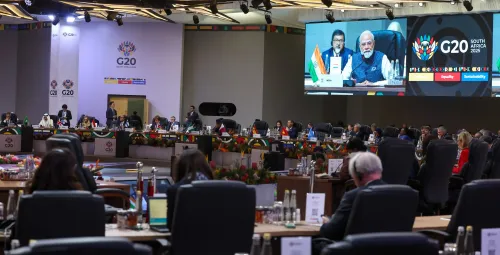Why Were Over 11,000 Afghan Refugees Deported from Iran and Pakistan in a Single Day?

Synopsis
Key Takeaways
- Over 11,000 Afghan refugees were deported in a single day.
- The deportation raises serious humanitarian concerns.
- Legal actions are underway to protect Afghan nationals in Pakistan.
- Returning refugees received some assistance but face ongoing risks.
- The situation highlights international obligations regarding refugee rights.
Kabul, Nov 23 (NationPress) Over 11,000 Afghan refugees were forcibly expelled from Iran and Pakistan in just one day, as reported by a Taliban official on Sunday, according to local media outlets.
The report was shared by Taliban deputy spokesperson Hamdullah Fitrat via X, citing data from the High Commission for Addressing Migrants’ Issues. The report indicated that on Saturday, a total of 2,102 Afghan families, amounting to 11,855 individuals, made their way back to Afghanistan, as per Pajhwok Afghan News.
These Afghan refugees re-entered their home country through various crossings including Pul-i-Abresham in Nimroz, Spin Boldak in Kandahar, Bahramcha in Helmand, Islam Qala in Herat, and the Torkham crossing in Nangarhar.
Fitrat mentioned that an additional 2,287 Afghan refugees (comprising 13,246 people) were transported back to their home regions, while 1,760 individuals received humanitarian aid. Furthermore, about 1,060 SIM cards from local telecommunication networks were distributed to the returning Afghan citizens.
Earlier this week, approximately 400 Afghan nationals, including artists and their families, approached the Peshawar High Court, urging a judge to intervene and stop their forced deportation back to Afghanistan, citing the principle of non-refoulement due to potential persecution they might face upon return.
The Afghan nationals filed a collective petition in the court, appealing for permission to remain in Pakistan as refugees. Among the petitioners are Zakiya Dunya Ghazal and several other Afghan artists and their families, as reported by Pakistan's prominent daily Dawn.
The petitioners referenced a previous ruling from the high court dated December 13, 2024, which addressed similar cases involving artists and transgender individuals, requesting the court to issue a ruling consistent with that prior judgment.
Respondents in the petition include Pakistan's Federal Interior Ministry, Federal Secretary of Cabinet Division, Directors General of National Database and Registration Authority (Nadra), as well as the Immigration and Passport department, FIA, and the Khyber Pakhtunkhwa Chief Secretary and Home Secretary.
The petitioners argued that it has become perilous for artists and musicians to reside in Afghanistan following the Taliban's resurgence, as they have openly opposed activities such as music concerts. They claimed to have relocated with their families to Peshawar after fleeing Afghanistan, emphasizing that Pakistan's policy of forced repatriation contradicts existing agreements with the United Nations High Commissioner for Refugees (UNHCR) and Pakistan's international commitments.









